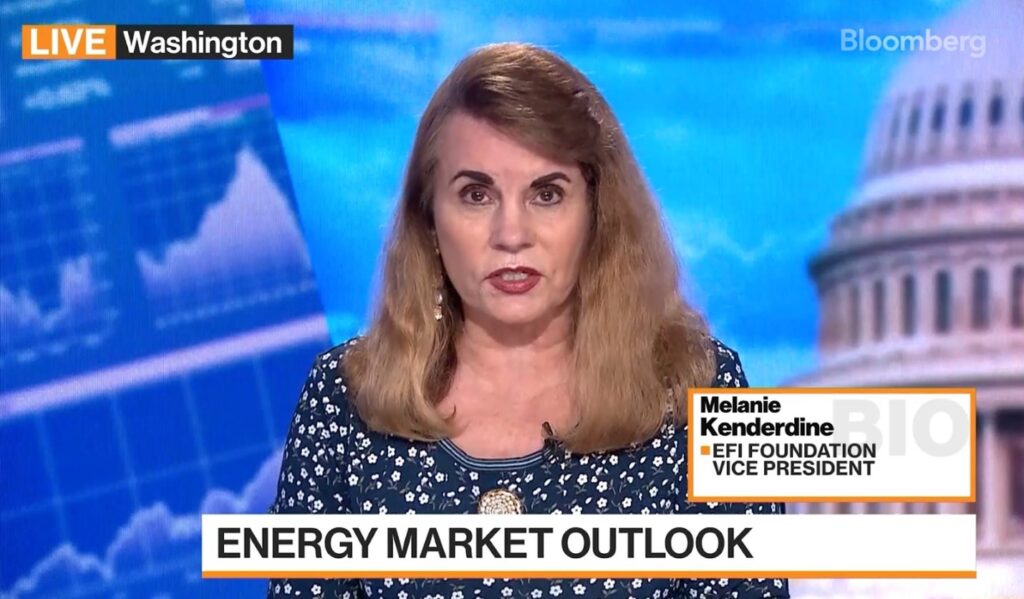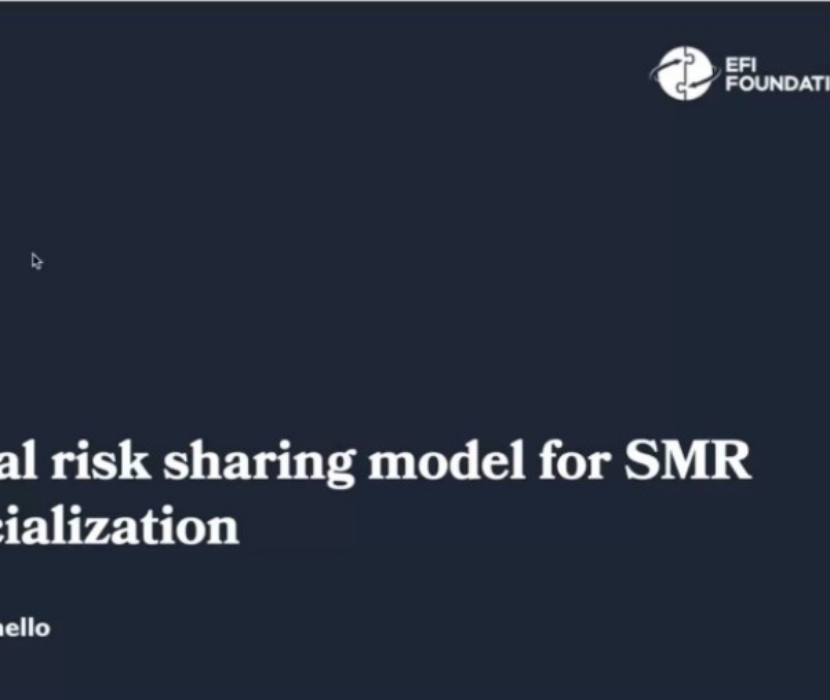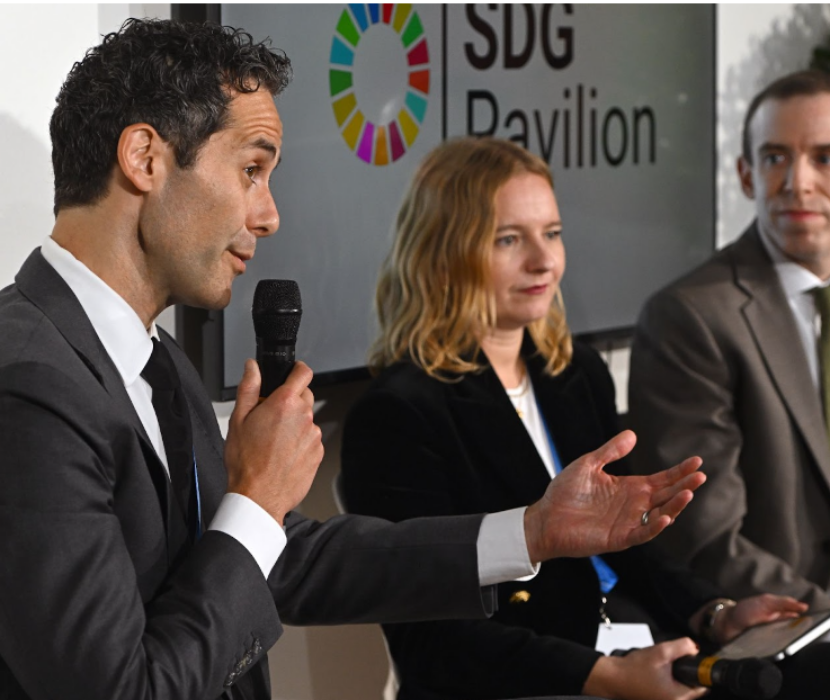
EFI Foundation Executive Vice President and Corporate Secretary Melanie Kenderdine spoke with Alix Steel and Guy Johnson on “Bloomberg Markets” on July 6, 2023. She explained the status of infrastructure, critical minerals, and policy incentives in the clean energy transition.
Kenderdine said reaching net zero by midcentury will be very difficult as energy transitions take many decades. For example, she noted that electric vehicles are expected to become about 13% of all U.S. passenger vehicles (up from less than 1% in 2021), but this isn’t expected to happen until 2035 (not for another decade).
“So the transition from oil for passenger vehicles, light-duty vehicles, is a long-term transition,” said Kenderdine. Even then, she said we will have much further to go for full market penetration and for a full transition to clean energy in all sectors.
To increase the electric capacity to plug in the increased volume of electric vehicles, high-voltage transmission infrastructure needs to be expanded and strengthened.
“By 2030, we need 360,000 transmission towers,” Kenderdine said, based on predictions from Princeton University’s Net Zero America analysis and her calculations.
Since these towers, along with other clean energy infrastructure, are made from steel, aluminum, and copper, Kenderdine also underscored the significant need for critical minerals mining in a short timeframe.
Kenderdine acknowledged that the demand for copper has grown dramatically, and the price of copper has doubled in the past five or six years. Subsidies provided by the Inflation Reduction Act would help with inflation, she said.
“We’ve made major progress: the CHIPS Act, the Inflation Reduction Act, the Infrastructure Act,” Kenderdine said, “[But] we’re going to need huge changes and additions to [the] infrastructure.”
She also emphasized the need for carbon capture and sequestration technologies and a range of policy incentives to reach net-zero targets and move toward a clean energy future.
With recording-breaking temperatures becoming more frequent, Kenderdine called climate change an existential threat that is becoming more obvious every day, providing motivation to meet those net-zero targets.
“We need to be thoughtful and technologically based in order to meet those targets,” Kenderdine said.
— Meredith Lu, Communications Intern
(Share this post with others.)




